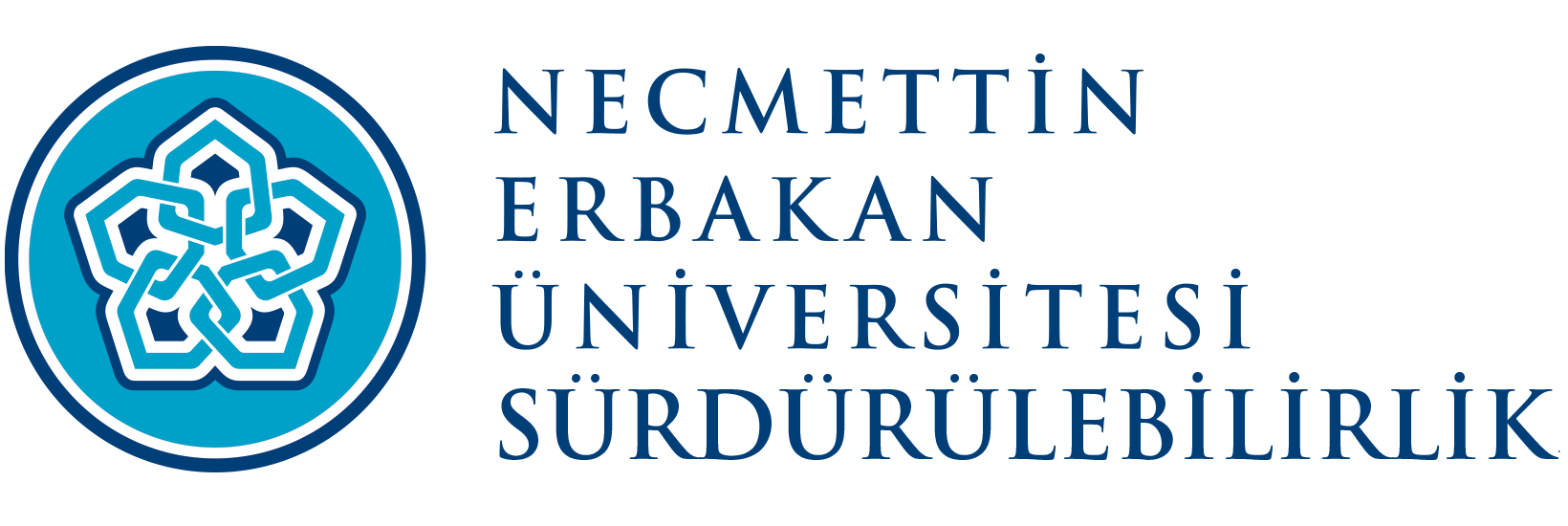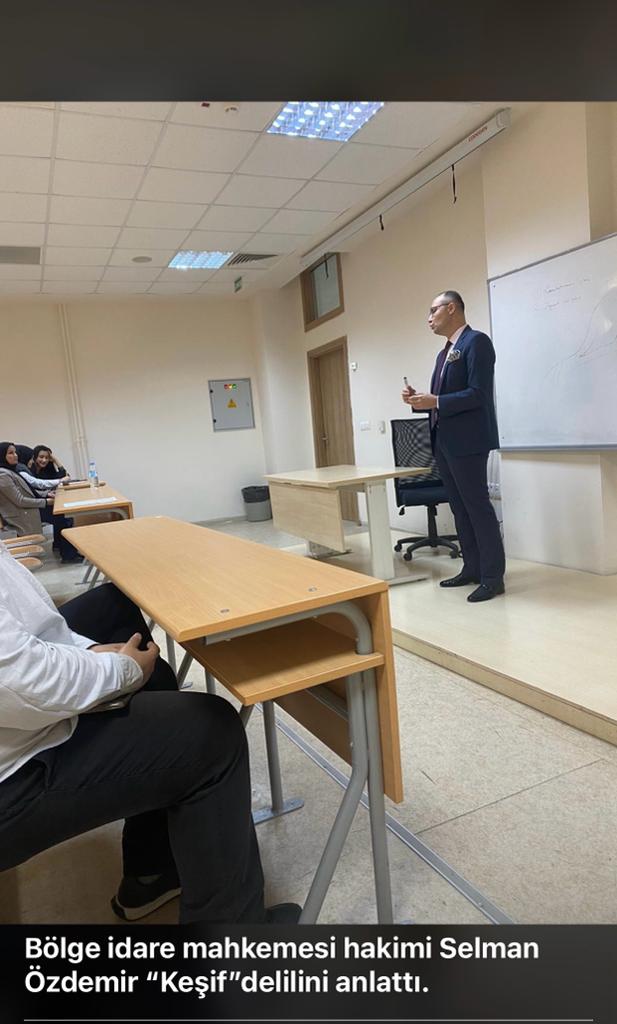
Viewing Evidence

| Date | 28.12.2023 |
| Department | Faculty of Law |
| SDG |   |
Selman Özdemir, a judge at the Regional Administrative Court, informed law faculty students about how judges carry out discovery activities within the scope of the program, of which the Ministry of Justice is a stakeholder. In particular, the following points were explained to the students: In a legal process, the judge, with a court order and the presence of the parties, conducts an on-site examination and observation process called "discovery." This court-ordered discovery process is typically carried out to closely examine evidence, evaluate the claims and defenses presented in court, and gain a concrete context. During the discovery process, the following activities may take place:
On-Site Inspection: The judge may visit the scene to observe and inspect it firsthand. For example, visiting the site of an accident to understand how it occurred.
Document Examination: The judge may closely examine documents related to the case. These documents may include evidence submitted to the court, contracts, or other important papers.
Asset Examination: If the case involves property or assets, the judge may observe the asset in question. For instance, assessing the condition of a property or determining the value of an asset.
Witness Statements: During the discovery process, the judge may re-examine the statements of witnesses presented in court. This helps in gaining a more detailed understanding of the witnesses' previous statements.